One of the most important factors to consider when shopping for a monitor or laptop is the type of technology used in the display. There are three types of LCD panel: TN, IPS and VA, each with positives and negatives that affect image quality, user experience and price. In this article, we’re going to look at the different aspects you should consider before buying a new monitor or laptop.
LCD Screen Types: What’s the Difference Between TN, IPS, and VA?
All LCD (liquid crystal panel) screens work the same way, what changes is the positioning of the crystals: when voltage is applied, the crystals change orientation, modifying the amount and position of light passing through the pixels, creating the image we see on the screen. This difference in orientation affects image quality, viewing angles, and screen response time.
TN LCD Screen:
The first mass-produced LCD panels were the TN type, which represented a direct evolution of the old tube TVs (CRT). To this day, TN panels are mass produced because of their relatively low production cost.
TN screens are known to have extremely limited viewing angles. Any angle change during use results in loss of fidelity of displayed colors. Even when viewed from the perfect angle, the color fidelity of TN screens is not capable of reproducing 24 bit truecolor, having to resort to interpolation to simulate the correct hues. The result is a mixture of visible colors and contrasts that are much lower than IPS and VA screens. For this reason, TN-type screens are not recommended for tasks that require high color accuracy, such as photo and video editing or graphic design.
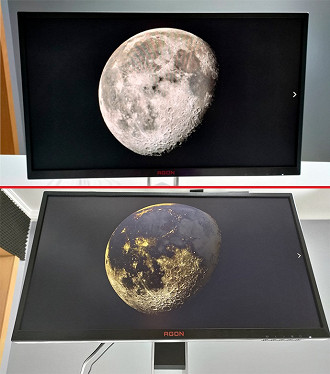
Despite being outdated, TN panels are still being produced on a large scale because they have a low production cost. In fact, if you buy a monitor today for less than R$600, it will almost certainly have a TN type panel.
Who should buy a TN screen?
These days, the only justification for buying a TN panel is the low price. Still, in my opinion, it pays to save a little more and buy a value-for-money VA panel, like the 24-inch FULL HD monitor we recently reviewed, the Zinnia Delfos DF24.
Positive points of the TN screen:
✅Low price;
✅Can achieve high refresh rates without Ghosting/Black Smearing;
Negative points of the TN screen:
❌Cannot reach full spectrum of colors, “washed” appearance;
❌ Bad viewing angles.
VA LCD cloth:
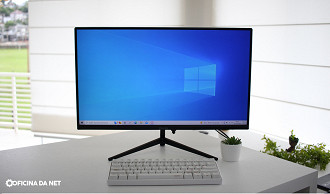
VA-type screens have excellent contrast ratios – the best of the three LCD screen types. According to tests carried out by RTINGS, TN screens reach 600:1 contrast, IPS 700:1 and VA generally reach 2500:1, even 6000:1 in some more high-end models.
VA screens can achieve a much darker black level than other LCD panels. Of course, it’s not a pixel completely blank like on OLED screens, but the VA has the advantage of not costing a fortune. This means that if you use your computer or TV in a dark environment, VA panels are the best option.
Most 4K LCD TVs come equipped with VA-type screens, such as Samsung’s BU8000 Crystal UHD that we reviewed here on the site and the 55-inch TCL P635, a TV with a VA panel that left everyone amazed with the image quality.
In my experience, the main disadvantage of VA screens is in games: there is a phenomenon called “Black Smearing” which is when the black pixels cannot keep up with the speed of the rest of the panel, leaving a black trail on the screen in scenes with a lot of movement. . This defect is mostly seen on models with higher refresh rates, above 120 Hz. For this reason, I don’t recommend VA monitors for gaming.
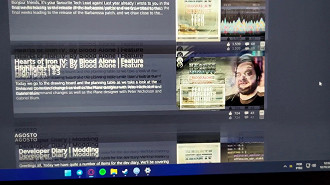
Who should buy a VA screen?
People who usually use the computer in dark environments will benefit from a panel of this type, since it does not suffer from light leakage like the IPS or the washed out colors of the TN. It’s great for watching movies, series and YouTube.
For games, it depends on how well you tolerate screen ghosting/black smearing. If it’s something that bothers you, buy an IPS. If you can ignore it, barely noticing the smudges, I recommend the Asus VG24VQE VA monitor that we reviewed.
Advantages of the VA screen:
✅Almost the same price as the TN but features superior colors.
✅The best contrasts an LCD panel can offer;
Negatives of the VA screen:
❌ Blurred image on models with high refresh rates (ghosting/black smearing);
❌Color fidelity is better than TN panels, but worse than IPS.
IPS LCD screen
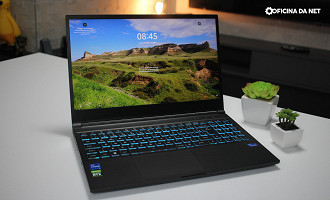
Both IPS and VA technology were created to overcome the limitations of TN panels, which are known for their poor quality in color reproduction and viewing angles. Among the LCD panels available, IPS are considered the best in terms of color accuracy and viewing anglesas they don’t suffer as much from color loss when viewed from different angles.
Although IPS panels have much more accurate color reproduction than TN panels, they lose to VA panels in representing dark color contrasts and black tones.
Until recently, TN panels were considered superior in terms of response time and refresh rates, but that has changed with the introduction of “Fast IPS” panels. These new monitors feature refresh rates in excess of 144 Hz and a response time of less than 1 millisecond. The race to create the fastest IPS monitor has reached impressive levels: it is not uncommon to find 165, 240 Hz monitors on the market, even reaching the Rog Swift Pro, with an absurd 540 Hz refresh rate.
Even though IPS panels have evolved to the point of surpassing TN in all aspects, the price remains high. Currently, in the Brazilian market, I couldn’t find an IPS monitor for less than R$900.
A downside of this technology is the “IPS Glow”, a light leak effect that can be observed in dark environments due to the inability of IPS to accurately reproduce the black color. It is important to remember that the degree of visibility of this effect can vary between units. Some very leaky, others, not so much.
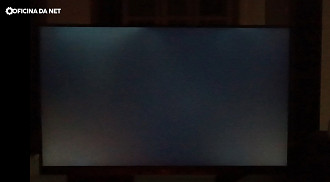
Who should buy an IPS screen?
People who value color accuracy: such as graphic designers, video editors, and content creators in general.
Gamers: IPS monitors are currently the best for gaming, as they offer high refresh rates without harmful phenomena like ghosting or black smearing from VA panels, and maintain excellent colors and viewing angles, unlike TN panels.
Positives of the IPS screen:
✅The best colors LCD can offer;
✅Options with high refresh rates without Ghosting/Black Smearing;
✅Great viewing angles.
Negatives of the IPS screen:
❌ Light leak in dark environments;
❌ Price is usually higher.
Conclusion
Since each type of screen has its advantages and disadvantages, the simplest way to choose between them is to find out which characteristics are most important for your use: Watching movies, series and YouTube, a VA screen offers great contrasts and relatively good. For gaming and work, the IPS colors and response time are excellent. The TN should be chosen as a last option, since they were surpassed by the other two types of panel.
